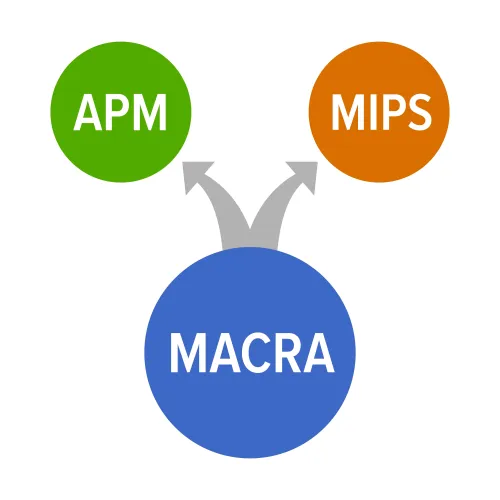
Practices will face penalties for not sharing data with patients, CMS says.
If you feel overwhelmed by the changes CMS has made so far this year, you're in good company. Recent rebrands and overhauls suggest Medicare is just getting started.
Background: In 2011, the Medicare and Medicaid EHR Incentive programs were introduced to encourage medical professionals to "adopt, implement, upgrade (AIU), and demonstrate the meaningful use of certified EHR technology (CEHRT)" in order to better serve patients, stressed CMS in a release. Over the years, Meaningful Use (MU) and then Advancing Care Information (ACI) chugged along with mixed reviews, both improving the delivery of care and health information but also hampering it and creating more work for clinicians.
However, recently rolled-out programs like MACRA's Quality Payment Program (QPP), Patients Over Paperwork, and Meaningful Measures aimed to put patients' needs before unwieldy protocols while reducing providers' hefty administrative burdens in the process. Then the agency released the MyHealthEData initiative and renovated Blue Button 2.0 in February, which combined with federal talk that EHR-program changes were coming in the not-so-distant future.
Now: This hurricane of deregulation, overhauls, and releases produced "Promoting Interoperability" or PI for short. The PI Program replaces MU for Part A, and the PI Performance Category is a reworked version of ACI for the Merit-Based Incentive Payment System (MIPS). PI is outlined in the 2019 Medicare Hospital Inpatient Prospective Payment System (IPPS) and Long Term Acute Care Hospital (LTCH) Prospective Payment System proposed rule available in the Federal Register.
Hints from the agency and other federal health programs over the last year suggest the name change and policies to go with it are not unexpected. "We are renaming the program 'Promoting Interoperability,' to reflect the program's new emphasis on providing healthcare information to patients in an electronic format and sharing information electronically among providers," explained CMS Administrator Seema Verma at Health Datapalooza in Washington, D.C., last month.
RFI: In the IPPS rule, CMS put out a Request for Information (RFI) for input on how to support "positive solutions to better achieve interoperability or the sharing of healthcare data between providers." However, the agency will not address the public commentary in the final rule, "but rather will actively consider all input in developing future regulatory proposals or future sub-regulatory guidance," says the CMS fact sheet. Interested parties may post comments on the rule on the Federal Register website. "To be assured consideration, comments must be received no later than 5 p.m. on June 25, 2018," according to the guidance.
Review This Takeaway from the Updated QPP Guidance
CMS revised all of its QPP materials on May 11 to reflect the new technical component. Much of the language and guidance remains the same but is now tweaked with new PI wordplay. A "Frequently Asked Questions" section has been added to shed light on the PI transitions, categories, and more.
See how PI impacts MIPS-eligible clinicians for 2018 at www.cms.gov/Medicare/Quality-Payment-Program/Resource-Library/2018-Promoting-Interoperability-Fact-Sheet.pdf.
Resources: Review the IPPS proposal with information about Promoting Interoperability at www.gpo.gov/fdsys/pkg/FR-2018-05-07/pdf/2018-08705.pdf.
